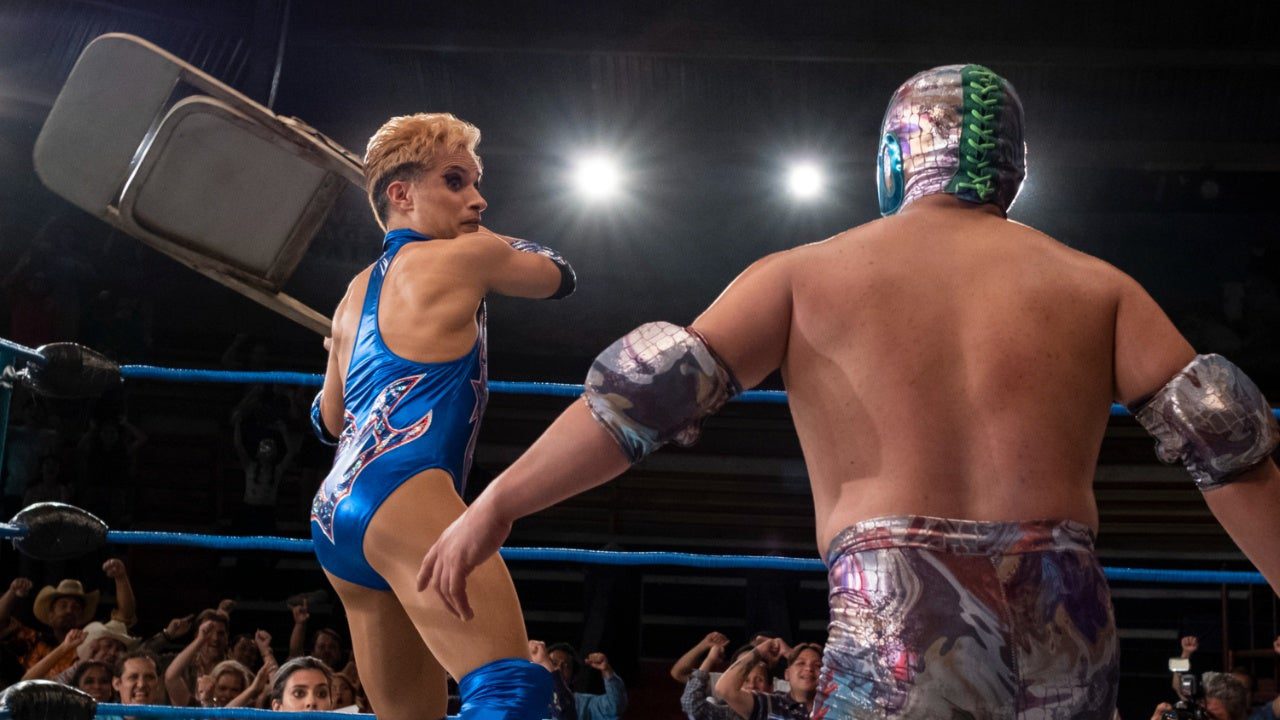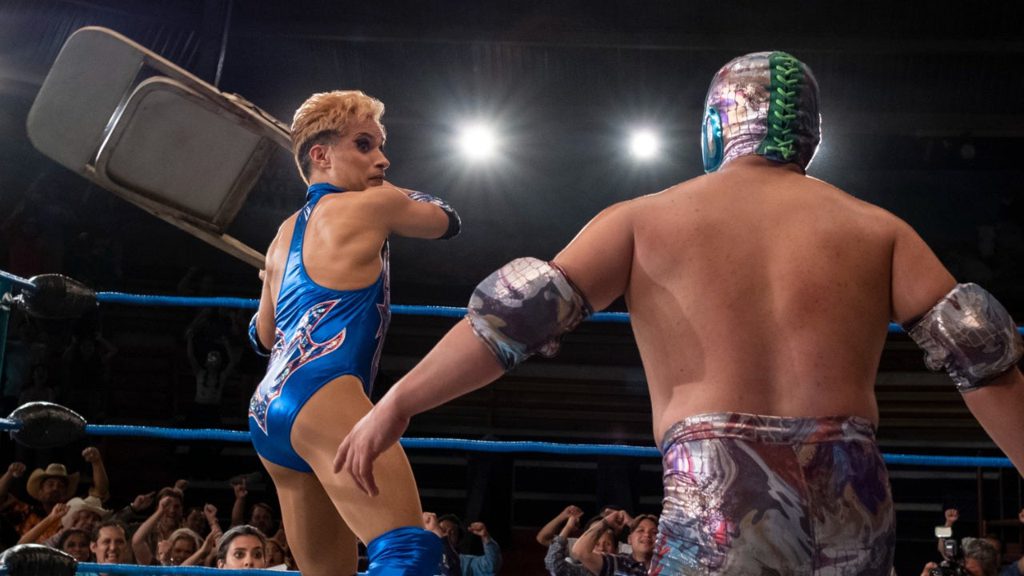Cassandro - Review
Gael García Bernal pops as the "Liberace of Lucha Libre."

Cassandro is currently playing in select theaters. The film premieres on Prime Video September 21.
As with any sport, lucha libre comes laden with the assumptions and the expectations of the society that created it. In the celebratory new biopic Cassandro, the societal force in question is the all-pervading machismo of Mexican culture – and the wrestler who turned it on its head with spandex, lipstick, and persistence.
As the story begins, Saúl Armendáriz (Gael García Bernal) is an out gay man from the border town of El Paso, Texas who’s trying to get his foothold in the luchador scene of the early 1990s. Saúl’s colleagues know he’s gay, and they keep him at arm’s length with homophobic locker-room banter. They tell Saúl he should wrestle as an exótico, a gay-coded character type that dresses in drag, minces around the ring, and is always defeated by the red-blooded, barrel-chested heterosexual hero. It’s a mirror of how this society treats gay people in general: As jokes and punching bags whose presence is never anything more than tolerated. But Saúl doesn’t want to be tolerated. He wants to win.
And so he takes on a new trainer, Sabrina (Roberta Colindrez), who’s a member of the LGBTQ+ community herself. Hanging out with Sabrina and her friends allows Saúl to come out of his shell a little, and he begins developing a new character. Previously a generic masked jobber who called himself El Topo, Saúl reinvents himself as the outrageous Cassandro, an exótico with a difference. Although he wears makeup and teases his opponents with homoerotic poses, this particular wrestler is one the audience is supposed to cheer for. It takes them a while, but they do, and the lucha libre game is never the same again.
Neither is Saúl. As the film opens, Bernal plays the character as meek and apologetic. He keeps his head and shoulders sloped inward, and is always ready with a deferential smile to diffuse any anger his presence may cause in others. As Cassandro’s star begins to rise, however, Saúl’s body language changes as well: He’s still sweet and modest, but he walks with his shoulders held back and makes eye contact with the macho men in the audience as if to say, “This is me. Take it or leave it.” He even finds the courage to give his married lover Gerardo (Raúl Castillo), a fellow luchador who’s embarrassed to be seen with him in public, an ultimatum.
Saúl’s newfound confidence takes him all the way to Mexico City, where he’s anointed as a real-deal luchador by a match against the legendary El Hijo de Santo (playing himself). Saul’s fellow wrestlers whisper about him, and warn him not to push too hard against the holy traditions of lucha libre. But there is never a point where those resentments boil over into onscreen violence. Nor does Saúl’s flirtation with Felipe (Bad Bunny), who works for his manager, spill out in dangerous ways. Instead, Cassandro chooses to accentuate the positive, depicting Saúl/Cassandro’s journey to fame as “the Liberace of lucha libre” as swift and relatively frictionless. It even leaves out some details from the real Armendáriz’s life, like his drug addiction (depicted here as some harmless bumps in the bathroom of a gay club) and struggles with depression.
Instead, Cassandro derives its drama from Saúl’s relationship with his mother Yocasta (Perla De La Rosa) and his absent father, another married man who barely acknowledged his son’s – or his son’s mother’s – existence. Although it’s refreshing that the outsider narrative here downplays the trauma that’s become a cliché in LGBTQ+ themed films, combined with the conventional sports-movie touches (think pump-up montages set to rousing music), the approach plays Saúl’s ultimate triumph with one single, inspirational note.
Bernal is undeniably lovable in the role, however, which takes Cassandro as far as this modest film’s ambitions need it to go. Director Roger Ross Williams is best known as a documentarian, and creates Saúl’s world with a gritty realism that’s lent some color by the luchadores' bombastic stage personas. The potential to make a campy film set in this world is definitely there. The decision to instead make Cassandro a story about one man’s journey to quiet inner strength through a loud outer persona is as iconoclastic as the man himself – if perhaps less flamboyant.
The Verdict
Cassandro blends an inspirational sports story with naturalistic drama for a film that skirts many of the tragic clichés of LGBTQ+ biopics. Set in the colorful world of Mexican professional wrestling, its ambitions are modest and its main character is charismatic, thanks to Gael García Bernal’s loving depiction of the man known as "The Liberace of lucha libre."
Cassandro Review

